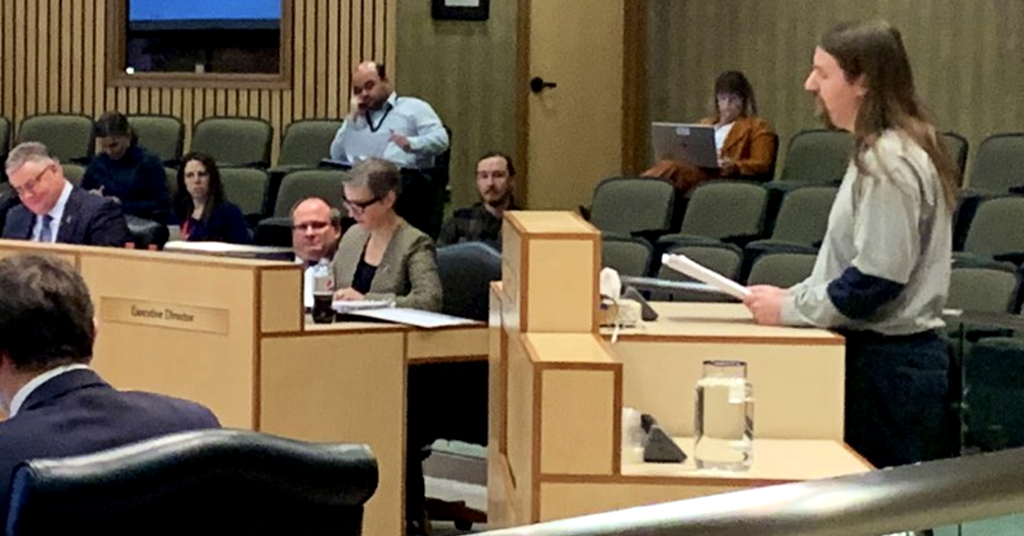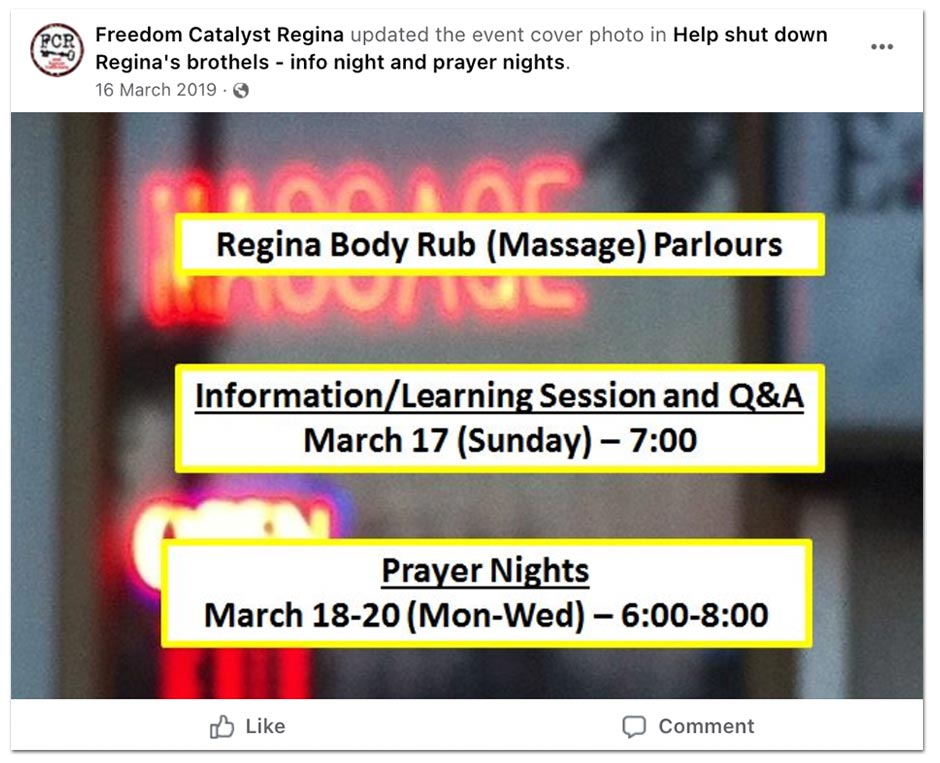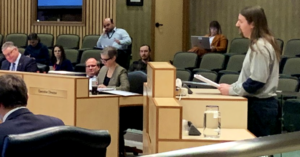
Sex Workers in Western Canada Say Their Health and Safety is Being Undermined by Right-Wing Religious Groups
The religious right is battling with body rub parlours in municipalities across the Prairies
Practitioners in body rub parlours’ occupational health and safety is being compromised by religious and anti-sex work organizations who support criminalization of their profession, sex workers say.
In recent years, municipalities across Canada have been updating bylaws regulating body rub centres following Bedford v. Canada, a 2013 supreme court ruling which struck down laws that criminalized selling sex.
While the Bedford decision decriminalized selling sex, the Protection of Communities and Exploited Persons Act (PCEPA) introduced by the Harper government in 2014 criminalized purchasing or advertising sex. Sex workers have recently called for this legislation to be repealed as it treats their profession as criminal activity instead of work.
Sex workers say Canada’s 2014 sex work law brought in by Stephen Harper’s government is unsafe and unconstitutional.
Here’s why they want it repealed.https://t.co/TyoQurFsSP #cdnpoli #canlab
— PressProgress (@pressprogress) July 12, 2022
PCEPA also poses difficulties for municipalities who regulate body rub parlours. While local sex worker groups advocate for harm reduction and occupational health and safety, well-organized religious and anti-sex work groups use PCEPA as a reason to push for the criminalization of body rub parlours.
Occupational Health and Safety Expert Bob Barnetson points out that body rub workers are usually categorized as independent contractors and are effectively regulated by the police – even though police are not “the ideal regulatory body” for OH&S.
“Sex work and regulating sex work is often viewed as criminal activity, even if it’s not technically a criminal act,” Barnetson told PressProgress. “Historically police officers have not treated sex workers particularly well. There are egregious abuses documented.”
In 2019, the Centre to End All Sexual Exploitation (CEASE), an anti-sex work organization which opposed Bedford, influenced the City of Edmonton to commission a report to assess a “five year exit strategy on licensing body rub centres.” This motion was controversial as some sex workers argued Edmonton had made strides in policies to improve occupational health and safety in licensed body rub centres.
The subsequent 2020 research report found sex workers felt safer working indoors in body rub centres than outdoor spaces. Sex workers also reported higher income and better access to information, resources and supports working in body rub centres than outside them.
Mona Forya, co-founder of Advocacy Normalizing Sex Work through Education and Resources Society (ANSWERS) says Edmonton’s consultation process was a uniquely positive experience.
“One of the things about Edmonton is that they realized that we were, as sex workers, main stakeholders. So they talked to us, not at us, they legislated with us, not for us. There’s a difference and that is a fairly unique situation,” Forya told PressProgress. “Nothing is ever perfect, but this is getting fairly close to what is very comfortable.”
For example, the report highlighted that “practitioners in BRCs see police and City staff as resources they can access for health and safety information, rather than seeing them as punitive enforcement mechanisms to be feared and avoided.”
However, Forya said CEASE’s influence in the consultations was intimidating for local sex workers because CEASE has “a lot more power” and “a lot more finances.”
Edmonton’s unique approach to body rub centre licensing is not reflective of challenges sex workers in other cities face, Forya adds, noting that city bylaw officers regulate body rub licensing in Edmonton, not the police.
“People in Edmonton in the body rub industry and in the sex work industry in general that are licensed, don’t fear raids. We don’t fear the police. You’re not going to find that another place. There’s a palpable fear in other municipalities,” Forya told PressProgress.
Regina city council voted to continue licensing body rub centres in 2019. Regina’s report which explored the benefits and drawbacks of licensing consulted body rub parlour workers, Indigenous groups and academic experts. The report notes that Regina employs a “harm reduction approach” to licensing and current research “is consistent on the perspective that decriminalization contributes to the safety of workers in the sector.”
Regina moved towards a decriminalized approach to body rub parlours, Stevens says, while finding compromises between various stakeholders and abiding by PCEPA. However, the majority of delegates that showed up to speak about the policy simply wanted body rub centres banned completely.
“The narrative just became hijacked by the right-wing evangelicals that couldn’t get off of the need to regulate moral behaviour,” Stevens told PressProgress.
Freedom Catalyst Regina, a Christian anti-sex work organization, was one of the proponents of banning body rub parlours in Regina. On their website, they list which city councillors voted in favour of licensing and in favour of banning body rub parlours in previous meetings. The group had been fairly inactive since the body rub parlour debate ended.

Freedom Catalyst Regina (Facebook)
“I think there really is an effort especially in Regina for the religious right to continue trying to dominate the political scene,” Stevens added. “I’d say for the last decade (the religious right) has been really successful at mobilizing and influencing school board policies and city policies that have effectively allowed us to have a war on sex and sex work.”
The number of licensed body rub centres operating in the city have dropped from 23 to approximately 10 following the new licensing rules, according to the Regina Police Service, though how many unlicensed parlours remain is unclear. Some massage parlour owners have opposed the licenses citing privacy concerns.
These privacy concerns were shared by sex workers in Winnipeg who supported the city’s move to end licensing of body rub parlours and escort services in January 2022.
Emma Reid (a pseudonym), a full-time sex worker and a member of Sex Workers of Winnipeg Action Coalition (SWWAC), operates three massage parlours in Winnipeg. Reid says body rub centre licenses were not enforced by bylaw officers like other workplaces, but by heavily armed police officers – often resulting in raids and heavy fines.
“I think we end up with all these extra evils, so to not repeal [the licenses] is to put up with increased police surveillance,” Reid told PressProgress. “Sending in headshots and body shots every time we want to redo our licenses, using our full name, having our addresses given to the police … is especially worrying if you have children, especially if you’re a woman of colour, or if you’re an Indigenous woman.”
However, large and well-organized right-wing organizations oppose body rub centre licensing because they favour criminalization and policing of sex work, Reid says.
After a Winnipeg Executive Policy Committee report advocated to lower the business license rate and increase surveillance for body rub parlours, former Conservative MP Joy Smith pushed the City to consider revoking the licences completely.
Smith was a vocal opponent of the Supreme Court’s Bedford decision and a key supporter of PCEPA while she was an MP. The Joy Smith Foundation, as well as Freedom Catalyst Regina, have supported the “Buying Sex is a Crime” campaign.
The City of Winnipeg has since partnered with the Joy Smith Foundation’s National Human Trafficking Education Centre to create more resources on sexual exploitation and human trafficking.
However, Reid is critical of the Joy Smith Foundation’s collaboration with police, noting “the police do not view sex work as work.”
“When I say sex work, I’m speaking in the way that it’s a consensual labor choice, as consensual any job is under capitalism.”
Our journalism is powered by readers like you.
We’re an award-winning non-profit news organization that covers topics like social and economic inequality, big business and labour, and right-wing extremism.
Help us build so we can bring to light stories that don’t get the attention they deserve from Canada’s big corporate media outlets.
Donate



